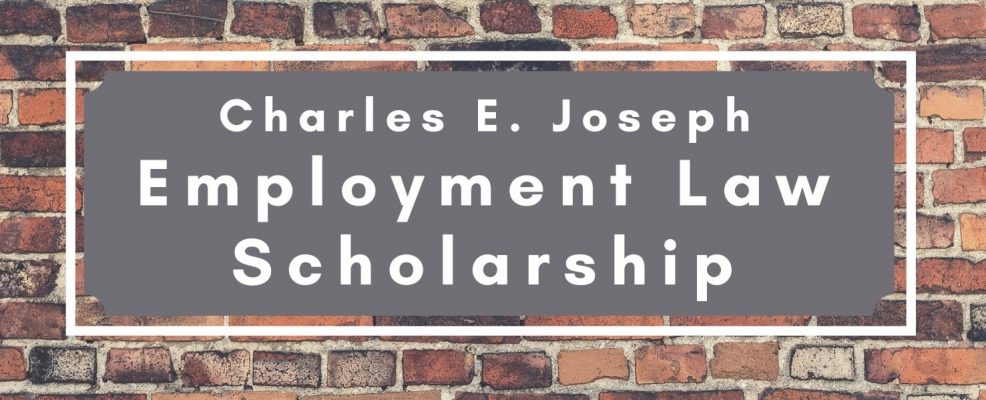
Labor Power Monopoly: Restoring Balance in the Modern Workplace
July 1, 2025
By Skylar Wu
The Law Students on Workers’ Rights series publishes essays from current and incoming students from top law schools across the country. These essays, submitted for the Charles E. Joseph Employment Law Scholarship, address the question “What is the most significant challenge facing workers’ rights, and what role should employment attorneys play in addressing that challenge?”
The most significant challenge facing workers’ rights today is the consolidation of employer power into what can be termed a monopsony – a system where corporations wield disproportionate control over wages, working conditions, and worker mobility through anti-competitive practices. From non-compete agreements in low-wage jobs to collusive “no-poach” pacts among employers, these tactics stifle workers’ ability to negotiate fair terms, unionize, or seek better opportunities. Employment attorneys must combat this monopolization of labor markets through aggressive litigation, policy reform, and public advocacy to restore balance and ensure workers retain the collective power necessary to demand dignity and equity.
Labor power monopolies emerge when employers collude to suppress wages, restrict job mobility, or undermine collective bargaining. A stark example is the 2010 In re High-Tech Employee Antitrust Litigation, where Apple, Google, Intel, and Adobe secretly agreed not to hire each other’s employees, artificially capping salaries for skilled engineers. This conspiracy, which affected over 64,000 workers, exposed how even high-earning professionals are vulnerable to employer collusion. Similarly, non-compete agreements – once reserved for executives – now bind one in five U.S. workers, including fast-food employees and janitors. These contracts trap workers in low-wage jobs, eroding their bargaining power and perpetuating income inequality.
Employment attorneys must dismantle labor power monopolies through strategic litigation. Class-action lawsuits, like the $435 million settlement in High-Tech Employee, demonstrate the potential to hold corporations accountable for wage suppression. Attorneys can leverage antitrust laws, such as the Sherman Act, to challenge no-poach agreements and non-competes that violate public policy. For example, in FTC v. Prudential Security (2022), the FTC successfully invalidated non-compete clauses for security guards, arguing they constituted an unfair restraint on trade. By reframing labor abuses as antitrust violations, attorneys can disrupt employer collusion and recover damages for workers.
Employment attorneys must also champion legislative reforms to prevent labor power monopolies. The Federal Trade Commission’s 2023 proposed rule to ban non-compete agreements nationwide – a move projected to increase wages by $300 billion annually – is a critical step. Under Chairman Andrew Ferguson’s leadership, the FTC has further amplified this effort through the formation of a joint labor task force. This task force focuses on investigating employer collusion, wage-fixing, and other anti-competitive practices that suppress worker mobility and bargaining power. Attorneys can amplify these initiatives by drafting model legislation, lobbying for state laws like Colorado’s 2022 ban on non-competes for low-wage workers, and advocating for stricter penalties for labor market violations. By collaborating with the task force’s enforcement efforts and contributing to its public hearings on gig worker exploitation, attorneys ensure regulatory actions translate into tangible worker protections. Additionally, supporting the PRO Act’s provisions to strengthen unionization rights would counterbalance employer dominance, creating a legal ecosystem where labor power monopolies cannot thrive.
Labor power monopolies thrive in environments of fear and misinformation. Employment attorneys must partner with unions, worker centers, and movements like the Law and Political Economy (LPE) Project to educate employees about their rights and reframe legal narratives around economic justice. The LPE Project’s critique of neoliberal legal doctrines – which prioritize corporate interests over worker agency – provides a vital framework for challenging labor power monopolies. Attorneys can adopt LPE principles by advocating for antitrust enforcement in labor markets, as seen in the FTC’s recent actions against employer collusion, and by training workers to document wage suppression or retaliation. These grassroots efforts, combined with strategic litigation, build cases that expose systemic abuses while fostering collective consciousness.
The fight against labor power monopolies is a fight for economic democracy. Employment attorneys, inspired by pioneers like Charles E. Joseph and guided by LPE’s transformative vision, must act as both litigators and movement builders. By dismantling non-competes, prosecuting wage-fixing, and advocating for laws that prioritize people over profits, attorneys can dismantle the architectures of exploitation. The goal is not merely to win cases but to redefine power dynamics in the workplace, ensuring that labor – not capital – drives the future of work.
Reflections from Charles Joseph
As corporations consolidate power in the labor market, how can workers protect their rights? In this fight, workers and employment lawyers are natural allies. Wu argues persuasively that employment lawyers have many tools – including the power of information. That’s why I founded Working Now and Then: to give everyone information about their rights.
Sometimes it’s very clear when an employer violates an employee’s rights. Minimum wage violations and retaliation can be obvious. Other violations are much harder to notice, like wage discrimination or wage fixing. Workers who know their rights can protect them.
Skylar Wu is a rising 2L at Georgetown Law, where she has undertaken pro bono work with the Workers’ Rights Clinic. Wu is the runner-up of the Charles E. Joseph Employment Law Scholarship for 2025. Contact Wu on LinkedIn.
Charles Joseph has over two decades of experience as an NYC employment lawyer. He is the founder of Working Now and Then and the founding partner of Joseph and Kirschenbaum, a firm that has recovered over $200 million for clients.